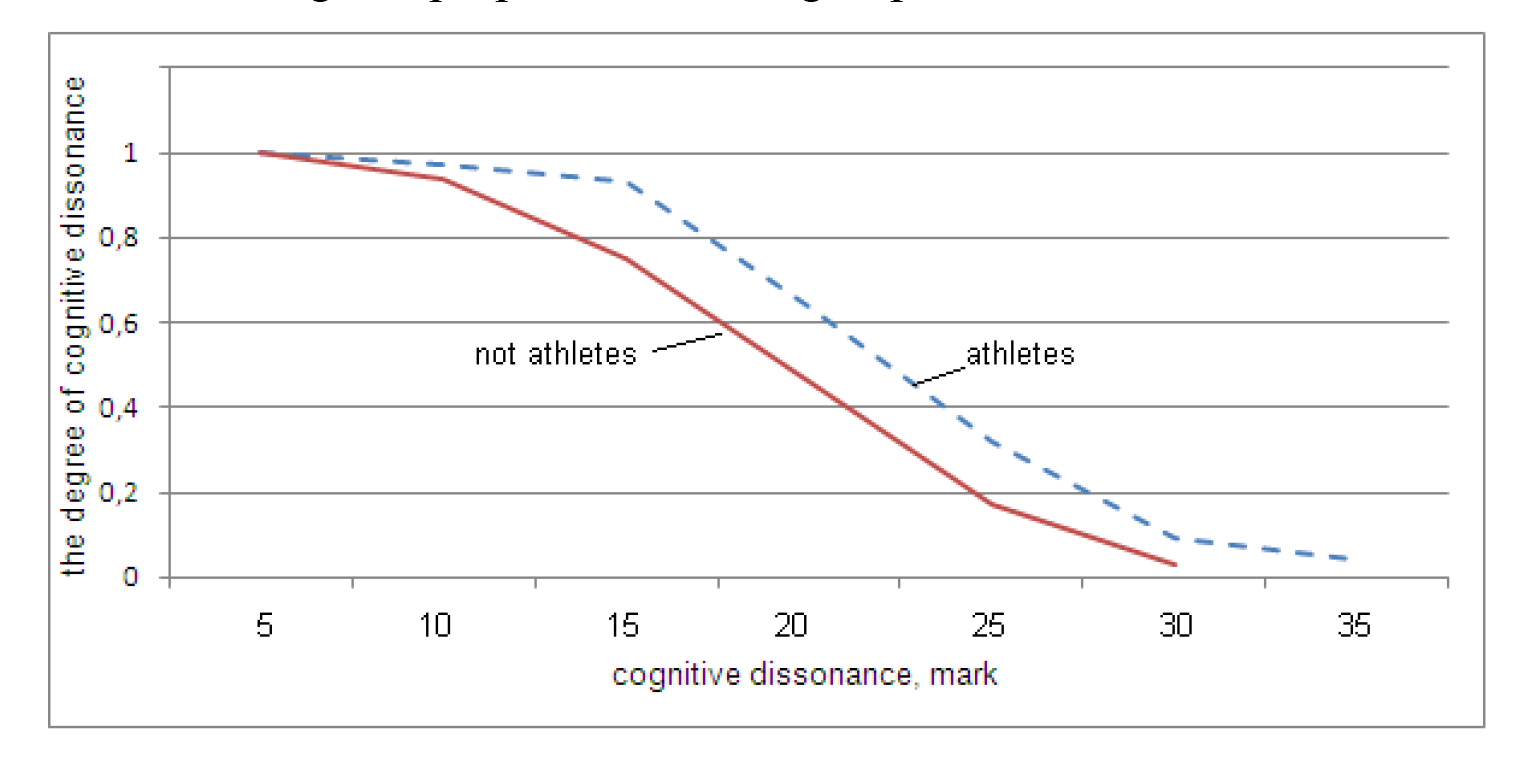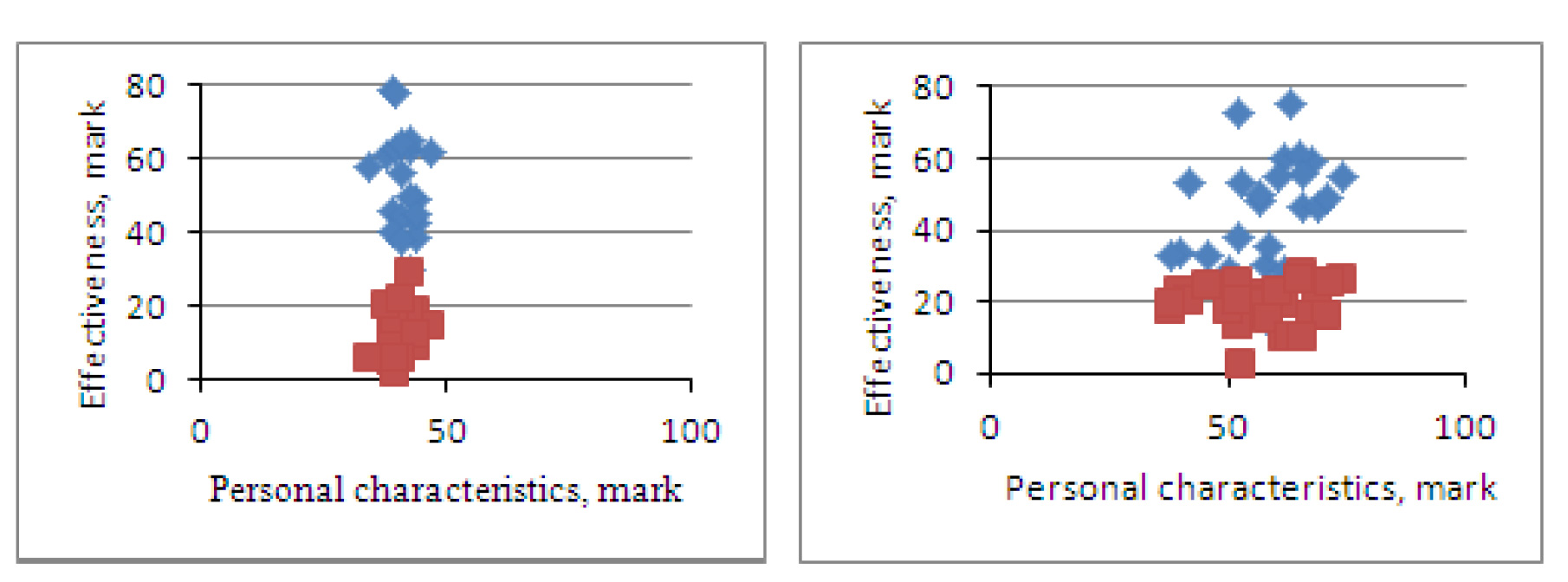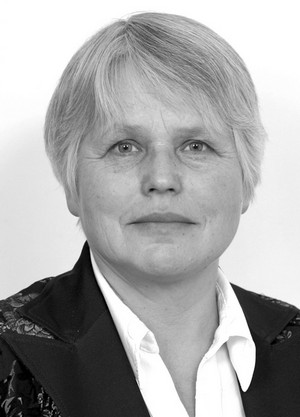Professional efficiency and personality profiling models for student-athletes and non-athletes
Фотографии:
ˑ:
Associate Professor, PhD V.A. Marenko1
S.Y. Gushcha2
1Sobolev Institute of Mathematics, Siberian Branch of the Russian Academy Sciences, Omsk
2Siberian State University of Physical Culture and Sport, Omsk
Keywords: competency building approach, professional activity, self-rating, cognitive dissonance, athlete, non-athlete.
Introduction. Young professionals must have general cultural and professional competences, which are greatly influenced by their personal characteristics. The main challenge in any field of education within the competency building approach is to train specialists who are able to apply effectively their knowledge in practical activities. The competency-based model for physical training and education is implemented in accordance with the Federal Law "On Physical Culture and Sport in the RF", which lays down the foundations for the development of healthy life of the population, improvement of adaptive physical education and international sports activities. The problems listed above determine the relevance of our topics.
Objective of the study was to explore professional and personal characteristics of students as the conditions to develop professionalism essential for future specialists.
Russian scientists are actively exploring both professional and personal qualities of graduates being future specialists. The article by I.A. Artemiev focuses on the implementation mechanism in practice-oriented learning [2]. L.B. Abdalina believes that the potential of an individual is a powerful factor in professional competence development of future specialists and the study of this phenomenon suggests significant scientific and practical possibilities [1].Thanks to the competency building approach applied in physical education students can fully develop recreational technologies, they give a new sense to their future professional activities [3, 5]. The article by I.A. Yurov contains the results of the studies on the relationship between physical working capacity and emotional-motivational sphere of students [6]. I.G. Gybadullin and I.V. Nyunyaev describe how to test athletes' physical working capacity and functional fitness [4] etc.
Research methods. Personality traits. The authors surveyed students to detect the state of their mental sphere defined as a degree of their psychological discomfort or cognitive dissonance. This condition applies to the state of an individual with dominating bad temper, when his essential needs are systematically denied. The respondents evaluated the answers to the survey questions using a five-point rating scale. The integral assessment was represented by the total of points or marks for answers to all the questions. The cognitive dissonance values ranged from 5 to 35 marks. The more marks were given by every student for answers to the questions, the lower cognitive dissonance he or she possesses. As a result of data analysis the models were developed in the form of fuzzy sets, representing the extent for evidence of the investigated properties for two groups of students, athletes and those not doing sports (Fig. 1).

Figure 1. Models of cognitive dissonance of athletes and non-athletes
Data analysis revealed the differences in degrees of cognitive dissonance for the testees. According to Figure 1, with the same value of cognitive dissonance, for example 20 points, the degree of cognitive dissonance for the student-athletes was about 0.4; for the student-non-athletes it was higher and amounts to 0.6. Further analysis revealed that only 5% of the student-athletes had high cognitive dissonance rates, and three times more of student-non-athletes. The low cognitive dissonance rate was detected in 24% of athletes that was more than three times more than that of non-athletes. Thus, student-athletes were considered to be suppressed by psychological discomfort to a lesser degree than student-non-athletes.
The study confirms the thesis that sports have a positive influence on people, help improve their physical and psychological conditions reducing social tensions for young people in general.
Modeling efficiency of professional performance. In accordance with the purpose of the study sport college and university students majoring in IT were tested to identify their personality traits such as self-concept and cognitive dissonance. Self-concept performs protective and regulatory functions, affects relationships with other people, human behavior, and personal development. Rational self-concept of an individual gives the real opportunity to achieve effective results, including professional efficiency. The impact of professional efficiency of student-athletes was determined by points in multiathlon and of IT-students – by testing their mental efficiency. Control parameters of relationship between professional efficiency and personality traits are shown in Figure 2.

Figure 2a, b. Cross-impact of professional efficiency of students, self-concept (diamond) and cognitive dissonance (square)
Discussion. In the diagrams of Figure 2 you can see that individual differences in the personality traits of the student-athletes are more vividly expressed since their efficiency range is much wider than that of the IT-students (Fig. 2 b). The rates of self-concept and cognitive dissonance for the IT-students are more similar to each other, since the interval range of values of their efficiency is small (Fig. 2 a).
Conclusion. In modern conditions the improvements of physical and spiritual health is of particular importance. The authors reveal the dialectical unity of the personality traits of students and efficiency in their future professional activities.
The practical significance of this work is that the teachers should consider and focus on the results obtained, which serve for them as a motivational mechanism taking into account the cross-impact of personal characteristics of students and in long-term perspective – their professional efficiency and success.
References
- Abdalina L.V. Potentsial lichnosti studenta kak faktor formirovaniya professional'nyh kompetentsiy (Potential of student' personality as factor of professional competences formation). / L.V. Abdalina // Nauchnye trudy Instituta nepreryvnogo professional'nogo obrazovaniya. 2015. № 5 (5). P. 13-18.
- Artem'ev I.A. Ramochny standart professional'nykh kompetentsiy – osnova organizatsii otnosheniy mezhdu obrazovatel'noy organizatsiey, rabotodatelem i studentom. APRIORI. Seriya: Gumanitarnye nauki (Framework standards of professional competences - the basis of organization of relations between educational organization, employer and student. APRIORI. Series: Humanities). 2016. № 1. P. 3.
- Viktorov D.V. Kompetentnostny podkhod v fizkul'turnom obrazovanii (Competency building approach in physical education). Vestnik Yuzhno-Ural'skogo gosudarstvennogo universiteta. Seriya: Obrazovanie, zdravookhranenie, fizicheskaya kul'tura (Bulletin of South Ural State University. Series: Education, health, physical education). 2015. v. 15. № 2. P. 5-10.
- Gibadullin I.G. Pokazateli fizicheskikh i psikhologicheskikh rezervov organizma studentov (Indicators of students' physical and psychological capacities). / I.G. Gibadullin, I.V. Nyunyaev // Pedagogiko-psikhologicheskie i mediko-biologicheskie problemy fizicheskoy kul'tury i sporta. 2015. № 1. P. 37-41.
- Gibadullin I.G., Nyunyaev I.V., Nayn A.A. Kontseptual'nye osnovaniya razvitiya professional'noy mobil'nosti studentov vuza fizicheskoy kul'tury (Conceptual bases of development of professional mobility of physical culture university students) / A.A. Nayn // Teoriya i praktika fizicheskoy kultury. 2015. № 5. P. 20-22.
- Yurov I.A. Empiricheskoe issledovanie sportivnoy individual'nosti (Sport personality: empirical study) / I.A. Yurov // Eksperimental'naya psikhologiya. 2012. V.5. № 3. P.108-114.
Corresponding author: marenko@ofim.oscsbras.ru
Abstract
Objective of the study was to explore different aspects of professionalism viewed as the creative and transforming natural inclinations correlating with personal traits of university students. The article gives a brief overview of the available study reports on the professional competency building in student-athletes and non-athletes. Subjects were surveyed to diagnose and rate potential cognitive dissonances as their personality traits. Cognitive dissonance is interpreted as an individual condition dominated by negative moods due to the base living needs are systemically left unsatisfied. Furthermore, the students’ self-rating survey was performed under the study, since the self-ratings are known to be of high influence on interpersonal relationship and, hence, on the human behavioural models and progress. The student-athletes' professional efficiency was rated by the points scored in the combined competitive events, whilst their non-sporting peers were tested by the intellectual workability rating tests. Based on the reference survey/ test rates, the authors designed the professional efficiency/ self-rating/ cognitive dissonance correlation dialectical models for the student-athletes vs. non-athletes. The models demonstrate that the individual traits are more expressed in the sporting students than in their non-athletes. Therefore, the study data show that physical education may be viewed as not only a living style but also a specific environment for the personality building and multisided development process.




 Журнал "THEORY AND PRACTICE
Журнал "THEORY AND PRACTICE